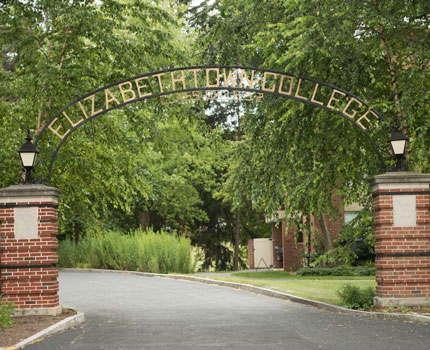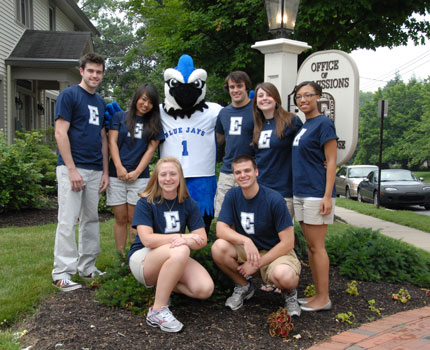What are Publicly-traded Securities?
Publicly-traded securities are stocks, bonds, and other investment vehicles whose values are readily available from an established securities market. For example, stocks listed on the New York or NASDAQ stock exchanges are publicly-traded securities.
Are Mutual Fund Shares Publicly-traded Securities?
Although mutual funds are sold by individual mutual fund companies rather than on an exchange, the same charitable contribution rules apply to mutual fund shares as to shares of publicly-traded securities. Gifts of mutual funds have the same tax benefits as gifts of individual securities.
Tax Benefits of Contributing Publicly-traded Securities
You can save income tax and capital gains tax when you give shares of a publicly-traded security that you have owned for a year or more.
Income Tax Benefit
If you have held your securities for more than one year you may deduct from your taxable income the full fair market value of your shares up to 30% of your Adjusted Gross Income after your total itemized deductions for the year exceed 0.5% of your Adjusted Gross Income. If you cannot deduct the full value of your contribution in one year, you may carry forward your unused charitable deductions for up to five additional years.
Capital Gains Tax Benefit
When you donate publicly-traded securities that have increased in value, and you have owned the securities for more than one year, you do not have to report any of your capital gain in the securities. If you were to sell these securities yourself, you would owe capital gains tax on the difference between the sale price and the amount you paid for them.
Should I Give My Securities or Sell Them and Give the Proceeds?
You should give your securities directly to Elizabethtown College if you have held them for more than one year and they have appreciated in value. This way, you will avoid paying tax on any capital gain you have in your securities. If you sell your securities first and then give us the proceeds, you will have to pay capital gains tax on all of your capital gain, an unnecessary and potentially substantial cost to you.
What is the Advantage of Giving Appreciated Stock Instead of Cash?
When you make a charitable gift of cash, you get an income tax charitable deduction only. When you make a charitable gift of the same value with appreciated stock, you get the same income tax charitable deduction and you avoid capital gains tax on all of your capital gain. The more highly appreciated your security, the more capital gains tax you will avoid.
The chart below shows how making a gift with appreciated stock can save substantially more taxes than making the same size gift with cash.
Cash Gift vs. Stock Gift
| | Cash Gift | Stock Gift |
| a. Gift Value | $10,000 | $10,000 |
| b. Income tax deduction | $10,000 | $10,000 |
| c. Income tax saved (at 37% rate)* | $3,700 | $3,700 |
| d. Purchase price | - | $1,000 |
| e. Increase in value (a - d) | - | $9,000 |
| f. Tax avoided on gain (at 20% rate) | - | $1,800 |
| g. Total tax savings (c + f)* | $3,700 | $5,500 |
*assumes donor itemized deductions
Should I Make a Gift of Securities that Have Lost Value?
No! If you sell securities that have lost value, you can net that capital loss against capital gains. Even if you cannot take a deduction for loss securities this year, there is a five-year carry forward. If you want to make a gift of loss securities, sell the securities and take the capital loss. You can then donate the proceeds of your sale to Elizabethtown College and use the capital loss to offset future capital gain.
What Happens if I Give Securities that I Bought Less Than One Year Ago?
The charitable deduction available for property you have owned for 12 months or less, so-called "short-term capital gain" property, is limited to either its current full value or what you paid for it, whichever is less. For example, if you give stock worth $10,000 that you purchased nine months ago for $1,000, your charitable deduction will be $1,000, not $10,000.
When you give short term gain property, your deduction is limited to 60% of your adjusted gross income rather than the usual 30%.
Is it Easy to Make a Gift of Publicly-traded Securities?
Yes. Whether you plan to give one share or one thousand shares, it is easy to give your publicly-traded securities to us.
Give Securities and Receive Payments for Life
Another option for giving securities is through a life income plan. Giving securities through a life income plan such as a charitable gift annuity, charitable remainder trust, or pooled income fund allows you to provide income for yourself or others you care about and then provide support to the College. Here's how it works:
- You transfer securities to the life income plan.
- A gift of appreciated securities to a charitable gift annuity, charitable remainder trust, or pooled income fund will typically defer or in some cases completely avoid capital gain from your gift of securities.
- During the term of the life income plan, you receive payments from the plan each year, typically for life.
- When the life income plan ends, its remaining principal goes to support the College.
Using securities to fund a life income plan typically will reduce your income taxes, providing tax savings if you itemize, and reduce or eliminate your capital gains taxes.
Daniel Hendricks would like to make a $10,000 gift to Elizabethtown College. While he could write a check for this amount, he will be able to save even more in taxes by giving stock worth $10,000 instead. After reviewing his plans with his investment advisor, he decides to give shares of Poptropica Corporation worth $10,000. He paid just $1,000 for these shares when he bought them 20 years ago.
Benefits
- Daniel will earn an immediate income tax charitable deduction of $10,000, which will save him $3,700 (37% tax), provided he itemizes.
- Daniel may deduct up to 30% of his adjusted gross income in the year of his gift, with a five year carry-forward period.
- He will avoid tax on $9,000 of capital gain, which will save him an additional $1,800 (20% tax).
- He will gain the satisfaction of making a $10,000 gift to Elizabethtown College.



